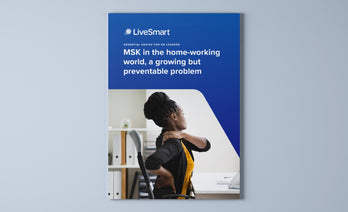The pandemic has changed a lot of things about the ways in which we work, most notably, where we work and how we collaborate. While working from home does have its perks (fewer dress code restrictions, home cooking, no travel costs), it has meant that companies have struggled to maintain staff engagement, and are seeing dips in motivation and positivity.
Face-to-face interaction has huge value, and it seems we are only now realising how much we took it for granted. Of course, it’s difficult to replicate an office environment at home, but there are definitely ways that companies can re-capture part of what we had before, and bring a new sense of belonging and a spark of motivation to their teams, screen-to-screen.
How do we define staff engagement?
Employee engagement goes beyond employee motivation and satisfaction, and can be defined as ‘a positive attitude held by the employee towards the organisation and its values’.
Therefore, an engaged employee is aware of the business context, and works alongside their colleagues to improve their overall performance within the job for the benefit of the organisation. However, employee engagement is not automatic - the organisation must work to develop and nurture it. “[Engagement] requires a two-way relationship between employee and employer.”
Employee engagement is a positive emotional connection that an employee has to their organisation, which is built through commitment and communication. It is often described as a state of mind whereby engaged employees feel diligent and enthusiastic about their work and company performance. They are committed, ‘go the extra mile’ and work collaboratively with colleagues to help the company reach its goals.
Why is staff engagement important for employee health?
Gallup Management Journal employee engagement survey asked US employees how they felt work affected their physical and mental health. Disturbingly, more than half of disengaged employees felt work had a negative impact on their physical and mental health, whereas only 12% and 6% of engaged employees thought work had a negative impact on their physical and mental health respectively.
Employees of engaged organisations feel more valued, supported and cared for by their management and overall company, which results in lower stress-related symptoms and improved work-life balance. Conversely, disengaged employees feel burnt out, lack focus and motivation, put in minimal effort and, put simply, work against company growth.
Keeping your staff engaged, motivated and positive while working from home - 5 key tips from LiveSmart
#1 Encourage a work-life balance and embrace flexibility
Working from home can lead to a spill-over between work time and personal time. When this imbalance becomes too much, it can lead to stress, burnout and can even damage relationships both at work and at home.
Solving this issue requires a healthy work-life balance - and encouragement from the employer to allow their staff time to relax and recuperate. With this, employees can start the day with energy and enthusiasm, and can cope with the challenges of day-to-day work. Employees should be encouraged to take regular breaks, including a full lunch break to step outside and get some fresh air. They should also be granted the flexibility with their schedule to balance home life (e.g. home schooling) with work demands.
#2 Empower managers to connect to and support their teams
Good communication is always key, but particularly when working from home. Regular communication and feedback from managers /senior management to employees can positively impact employee engagement, so try starting the day with team meetings and scheduling frequent 1:1 check-ins. Regular meetings not only allow managers and employees to voice issues or concerns, but also allow managers to provide direction and ensure employees have sufficient support and resources
#3 Show gratitude and provide feedback
Recognising the efforts and achievements of your employees makes them feel valued, increases their confidence and establishes loyalty and commitment - and there's no question that this results in improved engagement and performance! Simple gestures of gratitude including direct acknowledgement and group shout-outs are extremely important when it comes to keeping spirits and motivation high.
#4 Encourage regular collaborations
While remote working can make teamwork more challenging, it should still be encouraged across your workforce. Companies have access to an enormous range of new technologies that can help with this - group calls and document collaboration has never been easier. Not all team working needs to be formal, however. Hosting regular virtual company-wide or team-based activities can help to maintain workplace culture and camaraderie.
#5 Maintain personal learning and development
Recent changes to the workplace environment may have forced unintentional shifts with regards to the ways in which certain employees perform their roles. For example, reduced face-to-face interactions with colleagues and clients may make work feel less meaningful for an individual, or they may be doing less stimulating tasks than before.
To tackle this, organisations need to ask employees for feedback. How are they feeling about their current role? What could be done differently to help them work from home more productively? Companies may also wish to provide training and development opportunities so that employees can use their personal strengths on a range of different tasks outside their usual roles.
Is your company struggling with employee engagement during the pandemic?
Contact LiveSmart and receive a comprehensive health analysis across your workforce. To ensure long-term engagement and productivity, make the first step and begin your journey towards a happier, more motivated employee network.

 How to boost staff engagement during a pandemic
How to boost staff engagement during a pandemic

